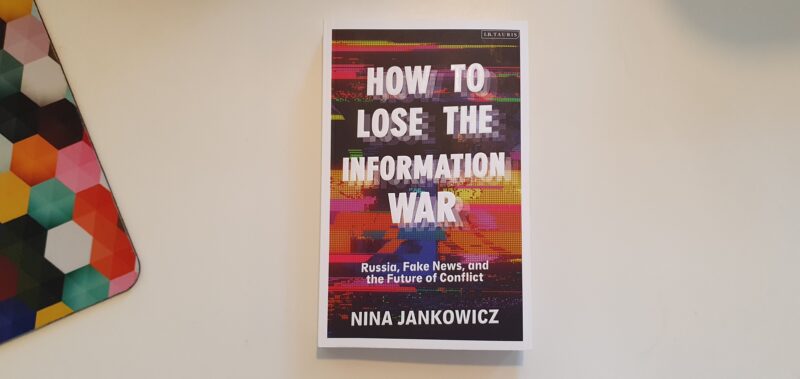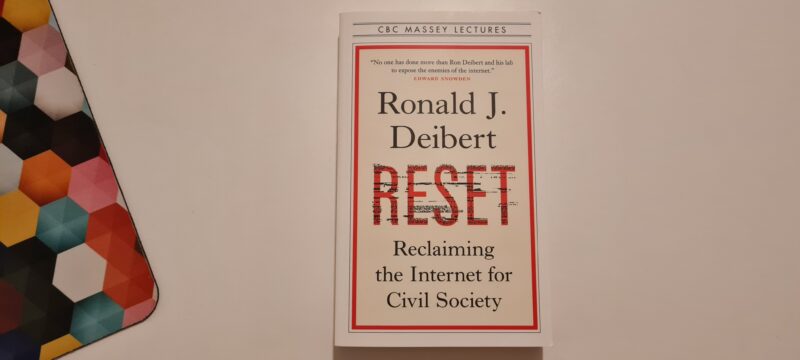The Foreign Intelligence Service of the Russian Federation (abbreviated SVR) seems busy spreading a narrative of Russian invincibility and inevitable Ukrainian defeat. Recently it was visible in one of Sweden’s largest newspapers, where American “experts” asserted Ukraine needs to negotiate immediately. In August CNN claimed The Federal Security Service of the Russian Federation (abbreviated FSB) was attempting influencing Westerners “through layers of ostensibly independent actors.” A known Swedish blogger accused Svenska Dagbladet for actively spreading this narrative by interviewing an “independent” American “expert”. Anders Åslund disproves the obvious faulty arguments put forward by these kinds of “experts”. Josh Rogin from the Washington Post also wrote a good opinion piece on this very issue. Finish authorities have revealed that Russian intelligence services have been active in foiling Sweden joining NATO. Who could’ve thought?
In an interview with The Kyiv Independent, Serhii Plokhy argues that we need to brace and prepare for a long war. The coming year might be pivotal and he argues, correctly I think, that short-term memory is dangerous, tending to dominate among political elites. Personally I believe regular people oftentimes see life through a short-term memeory version too. The latest inflation rate or cost of cucumber in the store seems more damaging to the world, and the self, than a long, brutal war.
Francis Farrelly of the same newspaper wrote an op-ed on the possibility of Ukrainian defeat. It is, to say the least, very critical of the West, and its willingness to really support Ukraine in terms of weapons, ammunition and weapon systems. Overall, I agree, although I think the Biden administration has done a marvelous job all-in-all and definitely compared to if Trump had been president, and compared to the European Union. Without the Biden administration, for all its’ faults, Ukraine would’ve fought a partisan war. The countries supporting Ukraine have the most resources on the planet. Russia has survived this far into the war because of the Soviet stockpiles, because economically, and we hear lots about how Russia has withstood economic pressure better then expected and how much stronger Russia is compared to Ukraine (from certain Western “experts” for instance), Russia has a GDP in comparison to New York state or Canada. So, approximately 150 million Russians produce as much as 20 million New Yorkers or 37 million Canadians. What do we have to fear?
It makes me wonder if the authoritarians have a better perspective on time than democrats and inhabitants in democratic societies? Of course Putler embarrassed himself so much he couldn’t even show up riding that three-wheeled motorbike (he can’t ride an ordinary motorbike) when he realized his troops were initially pulverized by the Ukrainians. But he also knows how to gamble in the casino of International Politics and Suchlike Affairs. So, he and his men tried all they could to prolong the war in order to outweigh the losses and eventually defeat the West by beating Ukraine on the battlefield or by waiting for the short-term-memory-people in the West to think, and shrug as if it didn’t matter: “nah, not worth it anymore”.
Johann Hari, among others, has written about our Stolen Focus, our inability to think properly because our attention span is so splintered and the gratification system is constantly set to “On”. For instance, the Swedish economy isn’t feeling too well, but the smallest evidence of a turn, like lessened increase of inflation, means that things are already turning. But an economic crisis isn’t averted by one small improvement, since the crisis itself is built up during decades. If Ukraine can’t “win” on the battlefield once, everything’s lost and we’re prepared to back our bags and go home.
If democracies and their inhabitants can’t see over the next hill, democracy as a concept is dead. The war between Ukraine and Russia is costly in many ways – that’s war. After all the promises of support for Ukraine, all the “Slava Ukraini” uttered by prime ministers and presidents, we simply can’t surrender for an enemy which seems stronger than initially thought or because a war continues longer than people anticipated. Why wouldn’t it last for years? Swift victories seem fictitious or cineastic. Victories require time, willingess, sacrifice, logistics, money and people.
Franz-Stefan Gady wrote about the movie Napoleon in Foreign Policy. Firstly, he mentioned the Western thought of “one major, decisive battle” which will lead to absolute and definite victory. Secondly, he writes (and has written before) about teh belief in a game-changing weapon, or a weapon system so strong it’ll lead to victory. None of these two things exist. Nuclear weapons, you say? Yes, they have delayed Western support for Ukraine, but have definitely not lead to some magical victory for the Russian forces.
An ex-commander in the US military claimed that the People’s Liberation Army (the military of the Chinese Communist Party, not the military of the state) is preparing to invade Taiwan in 2027 at the latest. Even if this is his words, the Chinese and American leaderships are well aware of the risk of war over Taiwan, attempting to defuse the tension. It might not, hopefully, come to pass, although it’s a reminder of the tangible risk of a confrontation between two superpowers, one democratic, one authoritarian, both wanting to shape the world.
According to a report from a German think-thank, Russia could rather quickly rearm and reconstitute in order to continue aggressions. The current Russian leadership, and many rightwing extremists perceives several states (like the three Baltic states) surrounding Russia as rightfully belonging to the Russian Federation, as former parts of the Russian Empire. The claim of renewed/expanded aggression has been made by the Swedish military and military analysts since the fullscale war on Ukraine.
Russia has also transformed itself, again, into a full-fledged dictatorship, bent on territorial and influential expansion. Belarus is already virtually annexed. Russia won’t bend because Ukraine negotiates. They won’t bend because NATO or the EU withdraws or abandons Ukraine.
We can’t be as naïve as Neville Chamberlain and his cohorts and accept dictators and authoritarian states to remain calm and peaceful. Unfortunately, Theodore Roosevelt was right when he wrote you should speak softly and carry a big stick, and that a good navy (here military) is not a provocation to war, it is the surest guaranty of peace. Russia must loose on the battlefield. No one should even consided abandoning Ukraine. You stand by your promise, by your friends.


